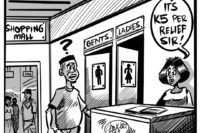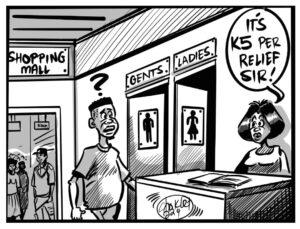ATTORNEY General Likando Kalaluka has asked the Constitutional Court to dismiss with costs, Constitutional lawyer John Sangwa’s petition in which he is seeking a declaration that the authority vested in the President to prescribe the emolument of the Judges is ultra vires Articles 122(3) and 123 (1) of the Constitution.
In this matter, Sangwa is seeking an order of mandamus directed to and to compel the Minister of Finance to put in place, within three months or such period as the court may deem appropriate, measures satisfactory to the Judiciary to ensure that the Judiciary is financially independent and becomes a self-accounting institution in line with Article 123(1) of the Constitution; and adequately funded in every financial year in line with Article 123(2) of the Constitution.
He also wants among others, a declaration that Section 3 of the Act to the extent that it vests authority in the President to prescribe the emolument of the Judges is ultra vires Articles 122(3) and 123 (1) of the Constitution and therefore null and void.
Sangwa further submitted that Section 12 (2) of the Act to the extent to which it confers authority on the President, by Statutory Instrument, to make Regulations prescribing the perquisites and other conditions of service of Judges including but not limited to car loans; housing allowance; non-private practice allowance; funeral assistance; travelling on duty is ultra-vires Articles 122(3) and Article 123(1) of the Constitution and therefore be ordered null and void
But in response to the petition, Kalaluka stated that adequate measures have been put in place to ensure that the judiciary is financially independent and adequately funded such as the enactment of the Judiciary administration Act no.23 of 2016.
He submitted that Sangwa was not entitled to any of the remedies prescribed in his petition.
“That section 21 of the Constitution of Zambia Act No.1 of 2016 provides for transitional provisions in the following terms; “subject to section six, where an Act of parliament is required to give effect to an article of the constitution as amended, that article shall come into effect upon the publication of the Act of Parliament or such other date as may be prescribed by, or under, the Act of Parliament”,” Kalaluka stated.
He argued that given that Parliament will dissolve on May 14, 2021 the order of mandamus will turn out to be an academic exercise.
“That parliament will dissolve on 14th May 2021 ahead of the general elections of 12th August 2021, hence the prayer for an order of mandamus directed to and to compel the minister responsible for finance to put in place, within three months or such period as the court may deem appropriate from the date of the order, measures satisfactory to the judiciary to ensure that the judiciary is financially independent and becomes a self-accounting institution and that it is adequately funded in every financial year is not tenable within the timeframe prayed for. Hence it becomes an academic exercise,” Kalaluka said.
He added that the prayer for the quashing of the various cited sections of the judges (conditions of service) Act and Statutory instrument no.80 of 2018 and the suspension of the declaration will create a lacuna and an absurdity in the law given the dissolution of parliament on May 14, 2021.
“One of the absurdities being that the salaries and allowances received by judges under the 2018 statutory instrument shall be deemed to be illegal and must be refunded in full by the judges back to the state for having been illegal and/or unconstitutional. That in the alternative, as opposed to declaring the various sections of the Acts cited by the petitioner as being unconstitutional and void which will lead to an absurdity or lacuna, the court should construe the impugned sections with such modifications, adaptations, qualification and exceptions as may be necessary to bring them in conformity with the constitution as amended,” Kalaluka said.
He however prayed that the petition be dismissed with costs.
Sangwa stated that prior to the amendment of the Constitution on January 5, 2016, the emoluments, pensions and other conditions of service for Judges and matters connected with or incidental thereto were governed by the Judges (Conditions of Service) Act, Chapter 277 of the Laws of Zambia of which Section 3 of the Act, provides that: there shall be paid to a Judge such emoluments as the President may, by statutory instrument, prescribe.
He added Section 12 of the Act, provides that: Without prejudice to the generality of subsection (1), the President may, by statutory instrument, make Regulations prescribing the perquisites of office and other conditions of service of a Judge, including but not limited to the following (a) car loans; (b) housing allowance; (c) non-private practice allowance; (d) funeral assistance; (e) travelling on duty.
Sangwa stated that despite the amendment of the Constitution on January 5, 2016, the provisions of the Act referred to above have remained in force, and no legislation has been enacted and no measures or steps have been taken to secure the financial independence of the judiciary as guaranteed by Article 123 of the Constitution.0












